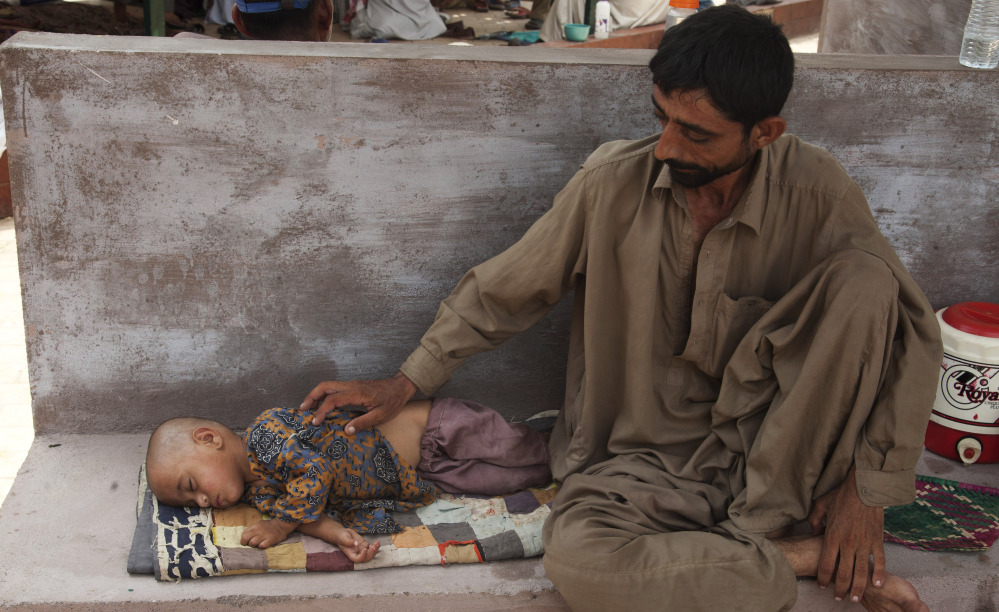KARACHI, Pakistan — The devastating heat wave that struck southern Pakistan last weekend is slowly subsiding but the toll was still climbing Thursday, to a total of 860 confirmed deaths, a senior health official said.
Pakistan’s deadliest heat wave on record comes just weeks after soaring temperatures caused nearly 2,200 deaths in neighboring India, raising fears that South Asia could be seeing some of the devastating effects of human-caused climate change.
The crisis centered in the southern port city of Karachi was worsened by poor local services, including a faulty power grid and shortages of potable water. And the heat wave struck as the city’s Muslim majority was observing the dawn-to-dusk fasting month of Ramadan.
Jam Mehtab Hussain, the provincial health minister in the southern Sindh province, of which Karachi is the capital, said that despite lower temperatures people were still being admitted to hospitals with heat-related ailments – though in smaller numbers than in previous days.
Ahmad Kamal, a spokesman for the National Disaster Management Authority, said authorities were providing free medical treatment to people in Karachi. He said the situation was improving due to lower temperatures.
On Thursday, the temperature dropped to 93.2 degrees Fahrenheit in Karachi from a high of 113 degrees Fahrenheit on Sunday.
TV footage showed ambulances transporting heatstroke patients to hospitals, where people held small rallies against power outages, which had exacerbated the effects of the heat wave.
Observant Muslims, who make up the majority of Karachi’s 20 million residents, were meanwhile abstaining from food and water during long summer days. A single sip of water invalidates the fast, but Muslims are discouraged from fasting if they are sick or if doing so would cause physical harm.
Allama Tahir Ashrafi, a Pakistani cleric, called on sick and elderly people to avoid fasting until the weather improves.
“Those people who cannot fast because of health reasons should not fast these days. There is no need to risk your lives,” he said. Volunteers were meanwhile distributing clean drinking water and juice throughout the day.
While climate scientists can’t blame human-caused global warming for Pakistan’s heat wave without a time-consuming study, several said it fits with what is expected from climate change.
Copy the Story LinkSend questions/comments to the editors.



Success. Please wait for the page to reload. If the page does not reload within 5 seconds, please refresh the page.
Enter your email and password to access comments.
Hi, to comment on stories you must . This profile is in addition to your subscription and website login.
Already have a commenting profile? .
Invalid username/password.
Please check your email to confirm and complete your registration.
Only subscribers are eligible to post comments. Please subscribe or login first for digital access. Here’s why.
Use the form below to reset your password. When you've submitted your account email, we will send an email with a reset code.